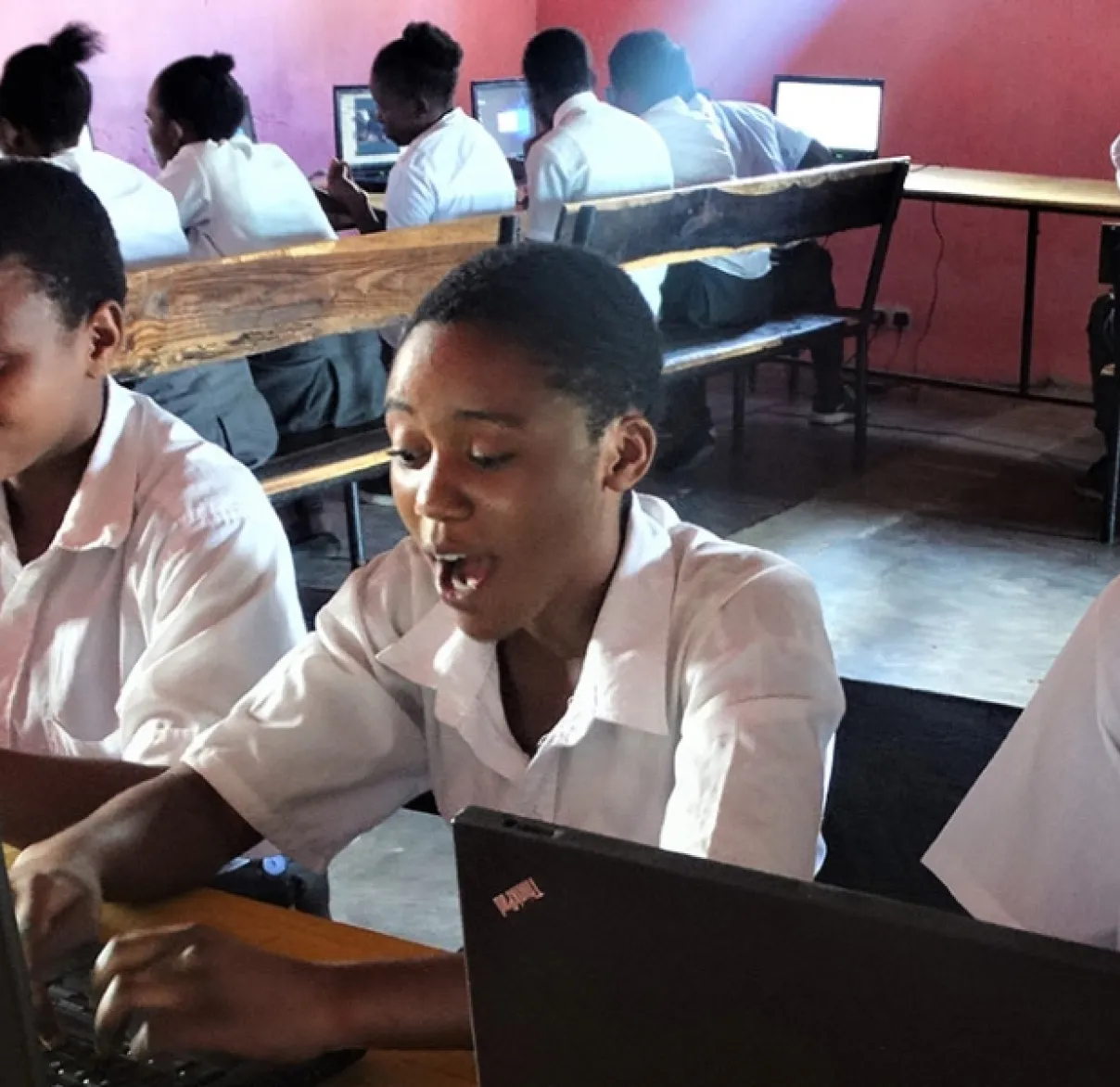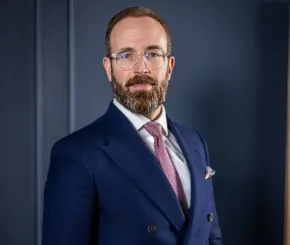Turing Trust’s work to bridge the ‘digital divide’ is also helping to tackle climate change
The charity inspired by the father of modern computing has shown that giving old computers new life has environmental as well as social benefits.

Article last updated 22 July 2025.
James Turing admits the carbon-cutting contributions of the charity set up in honour of his acclaimed great uncle are “a happy accident” but is now determined the organisation will do all it can to prevent harmful climate change.
First established in 2009, the Turing Trust refurbishes older IT equipment, installs educational software and donates the devices to students around the world. The work of the Trust – inspired by Alan Turing, widely regarded as the father of modern computing – has so far meant 113,000 students have been able to use 12,000 donated devices.
"The work of the Trust has so far meant 113,000 students have been able to use 12,000 donated devices."
James, the Trust’s chief executive, says: “We started the charity for social reasons to bridge the digital divide between rich and poor countries, making sure that every student in the world gets equal opportunity to learn how to use a computer, which we think is pretty fundamental to modern life these days.”
He continues: “Our main focus is IT equipment in the UK that, in our opinion, is discarded very prematurely. Okay, businesses need to keep up to date, I can certainly understand that, but that doesn't mean that those assets are completely useless.
“In places like Malawi, which is where we’re currently working to distribute these computers, they’re still potentially fantastic transformative devices – maybe not the quickest in the world but, frankly, if you’ve never used a computer before that doesn’t matter.”
Environmental benefits
The Trust soon realised that giving old IT equipment new life has environmental as well as social benefits. More than 50% of the average computer’s lifecycle emissions are produced during its manufacture, explains James, so it's much ‘greener’ to keep using the device for as long as possible.
"The Trust soon realised that giving old IT equipment new life has environmental as well as social benefits."
James says: “To be honest, our environmental contributions are a bit of a happy accident but, once we realised that, it was certainly something we wanted to focus on.”
The Trust’s work has a significant impact and Rathbones itself is playing a part in that. “They’ve been one of our bigger donors, which has been fantastic,” says James. Donations of IT equipment by Rathbones over the past two years have helped 31,000 students to learn IT skills and saved 494 tonnes of CO2 – equivalent to 1,200 trees being planted or the annual carbon footprint of 51 people living in the UK.
"Donations of IT equipment by Rathbones over the past two years have helped 31,000 students to learn IT skills and saved 494 tonnes of CO2."
James says: “Initially, the Trust’s objectives didn’t include climate change, but in 2015 we actually changed our constitution to explicitly say they we would do what we can to minimise our impact on the environment.”
A major opportunity to deliver on that pledge came when the Trust moved to its present premises close to Edinburgh in 2019. After Zero Waste Scotland made recommendations and suggested funding sources, the Trust installed an air source heat pump, extensive insulation, LED lighting and water-saving taps and toilets. The measures are expected to save the charity up to £10,000 a year on energy bills and reduce the building’s CO2 emissions by 17 tonnes.
James concedes that there is inevitably a carbon emissions cost to transporting donated computers to Africa but points out that by shipping the equipment, rather than moving them as airfreight, the environmental impact is “pretty miniscule in terms of the overall picture”.
Shipping the computers from the UK for reuse in classrooms in Malawi works out being 66 times more efficient than recycling in terms of each computer’s carbon footprint over its life cycle, says James, and costs the Trust just £8. In contrast, airfreight would create a “horrendous carbon footprint and also be ludicrously expensive”.
Every charity has a role to play
James believes that environmental impact should be part of all charities’ plans: “For any organisation in the third sector, you're working in a moral economy and to be on the wrong side of climate change in this day and age puts you on the wrong side of that moral economy.”
"A good starting point, he says, for any organisation looking to cut its carbon footprint is to focus on areas where it can make the biggest impact."
A good starting point, he says, for any organisation looking to cut its carbon footprint is to focus on areas where it can make the biggest impact: “There are carbon calculator tools out there which are very helpful, but our experience was that it was very much about finding the most impactful measures and tracking them closely. Do the research into your own circumstances and find out what is your biggest carbon culprit – and don’t get distracted by the little things.”
James suggests one of the first and simplest things a charity can do is change to a renewable energy supplier. However, for charities daunted by setting out on their carbon-cutting journey, he says there’s plenty of help online: “Just start with Google. Frankly, there's so much good information out there these days that’s free and available with just a few clicks.”



